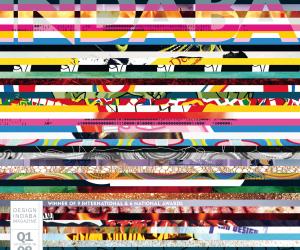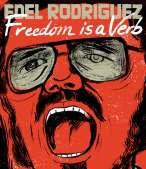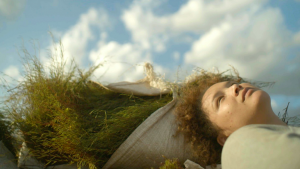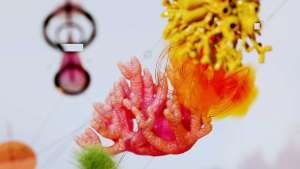First Published in
Clockwork Zoo was never meant to be. Approached for advice, an international producer scoffed that there wasn't enough animation talent in the whole country to pull it off. Then the studio's multinational sports-marketing parent company tried to yank the plug on a project they didn't understand. Repeatedly. And yet, the Zoo persisted, out of a sense of stubbornness as much as creative vision, driven by the ludicrous notion of starting an empire.
Two years down the line, Clockwork Zoo is newly independent and has emerged as the largest animation studio in Africa this side of the Sahara. Our focus is not on motion graphics or servicing work, but creating original content. While most of the local industry is dedicated to making commercials, the Zoo creates the stuff that fills the gap between ad breaks.
The studio's first born, URBO: The Adventures of Pax Afrika, was conceived as a kids' cartoon with smarts and a distinctly African twist, featuring a cocky boy hero who receives magical superpowers from the spirits of his ancestors. The goal was to tackle relevant and resonant 21st-century issues head-on, from traditional kids' themes like bullying and coping with annoying little sisters to broader themes like celebrity, consumerism, global warming, the beauty industry, violent toys, the role of the media, cell phone porn, drugs and even HIV/Aids.
It's been the most ambitious animation project undertaken in South Africa to date, a full half-hour show running to 104 episodes (so far) and entirely locally produced. Now going into its second season on two channels of the national broadcaster, the SABC, URBO has been praised by critics for its "razor-sharp writing" and "world-class animation with a message".
But as the Mail&Guardian points out, URBO is also "delightfully subversive", a factor that has made the show a hit not only among the under-14s of its target market, but also with a rabid fan base of university students and adults who value the seditious wit.
The company's pipeline is a mere 11 weeks from script to final audio mix. To put that in perspective, one episode of The Simpsons takes nine months. Each department from storyboard to 2D completes their stage on an episode every week, making it one of the fastest productions in the world. But the art of animation is more alchemy than assembly line.
Animation is based on the persistence of vision, tricking the brain into mistaking a sequence of stills for movement. But it's also about creating the illusion of life, infusing pictures with personality, fooling us into believing they're human, albeit a two-dimensional variant thereof.
Perhaps Clockwork Zoo's greatest achievement is the richness of our shows; fully realised universes populated by intriguing characters with flaws and quirks and ideas of their own. And that's where the collaborative spirit of the studio is so critical.
Concepts bounce around between departments, like photons in a laser, feeding off each other, gaining coherence and focus, and occasionally blowing up spectacularly. It's all about how other people interpret ideas, adding to them, elaborating on them, so that the end result is gestalt - more than the sum of its parts.
Of course, if you're going to build an empire, you need more than one attraction in your wunderkamer and Clockwork Zoo already has them lined up with new shows about suburban slacker zombies, cute'n'creepy nightmares and a crime-fighting banana in the machine.
And the machine is growing. From a development team of seven, Clockwork Zoo's animation department is overflowing the boundaries of their industrial-chic Kloof Street office, with a staff complement of 52. But executive producers Sean Rogers and Vince Gibbons are dreaming of far bigger conquests, and cultivating new talent by setting up internships and training partnerships with the Department of Trade and Industry, and leading 2D animation software company Toonboom.
By 2010, they're aiming to have 1 000 animators on the Zoo's books, service co-production deals with India and at least 10 original shows in production. It's a long-term strategy, which makes this not just about persistence of vision, but also a vision of persistence.
The Shows
URBO: The Adventures of Pax Afrika
Champion racer. Teen troublemaker. And now, chosen by the ancestors to save the world... What were they thinking?
Burping robot apes! Mutant sock monsters! Magical superpowers! Homework! It's all in a day's work for Pax Afrika and his friends in the critically acclaimed sci-fi action comedy series that tackles big issues like global warming, health, online chats, junk food, racism, racketeering and reality TV in a way that's fearless and funny.
URBO is the dream child of executive producer Sean Rogers and forward-thinking SABC commissioning editor Wilna van Schalkwyk, who took a big risk on a project that seemed improbable.
It paid off with dividends. Just more than a year since its launch, URBO has become a South African phenomenon. In part that's thanks to its engaging characters and subversive humour that plays out like The Simpsons for kids, but it's also a credit to the distinctly local flavour of the show that riffs off African traditional beliefs and consumerist culture. It's a reflection of South Africa's real and sometimes uncomfortable duality; a far cry from the neatly niched African fables that have become the staple of many local cartoons.
Deadbeats: Life Sucks When You're Dead
Deadbeats was conceived by scriptwriter Sarah Lotz, who has a freakish and freakishly disturbing affinity for the undead, together with the rest of the script team - Sam Wilson and myself.
A darkly offbeat adult comedy, it's the show that's drawing the most attention from international markets. Three zombie housemates and one stoner (who only thinks he's a zombie) try to make it in the real world without losing their heads. It's Friends meets The Office by way of Dawn of the Dead as the deadbeats deal with the daily perils of taking out the garbage and walking the brain as well as love across the decomposition line, unlife activists, zombie wannabes and microwaves linked to hell.
It's also Clockwork Zoo's first foray into converting from Flash to the leading 2D animation software Toonboom.
Lucy and the Nightmares: It Used To Be All In Her Head...
Lucy and the Nightmares is a cute'n'creepy series for kids, originating in the twisted and original mind of animation director Tyronne Herring, former front man of anarchic punk group the Electric Fuck Pirates and a founding member of URBO's development team.
Herring's influences include punk music, Tim Burton, Roald Dahl and cynical comic virtuoso Jhonen Vasquez of Invader Zim fame (not to mention his own misadventures with the manky blue bear of his childhood). His style leans towards the spooky, but he also specialises in creating girl characters with sass - something Lucy has by the hearse-load.
Lucy has a habit of "Lucy-fying" any situation, turning the most ordinary experiences into an outlandish adventure. But it's not all in her head any more. Ever since Meh Bear, the littlest nightmare, accidentally opened a doorway through her dreams, bigger scarier nightmares have been leaking into the real world. Now, Lucy has to face down her fears with only her wits and one plucky nightmare bear to help her.
Banna Banana: Criminals Are Afruit!
Wynand Groenewald aka Munki aka Clockwork's Zoo's geek genius technical lead has been nursing his banana fetish for many years, so perhaps it was only natural that all the fruit went to his head, where they sat down and thought up a silly show about themselves.
It's a wacky buddy comedy for kids that's one banana short of a fruit-basket. In the tradition of Tex Avery's finest moments, Banna Banana is the tale of an over-ripe wannabe crime fighter on the trail of non-existent evil-doers, leaving a wake of devastation, chaos and insanity behind him. It's up to his long-suffering sidekick Strawberry Boy to pick up the pieces and save Banna's skin.



















